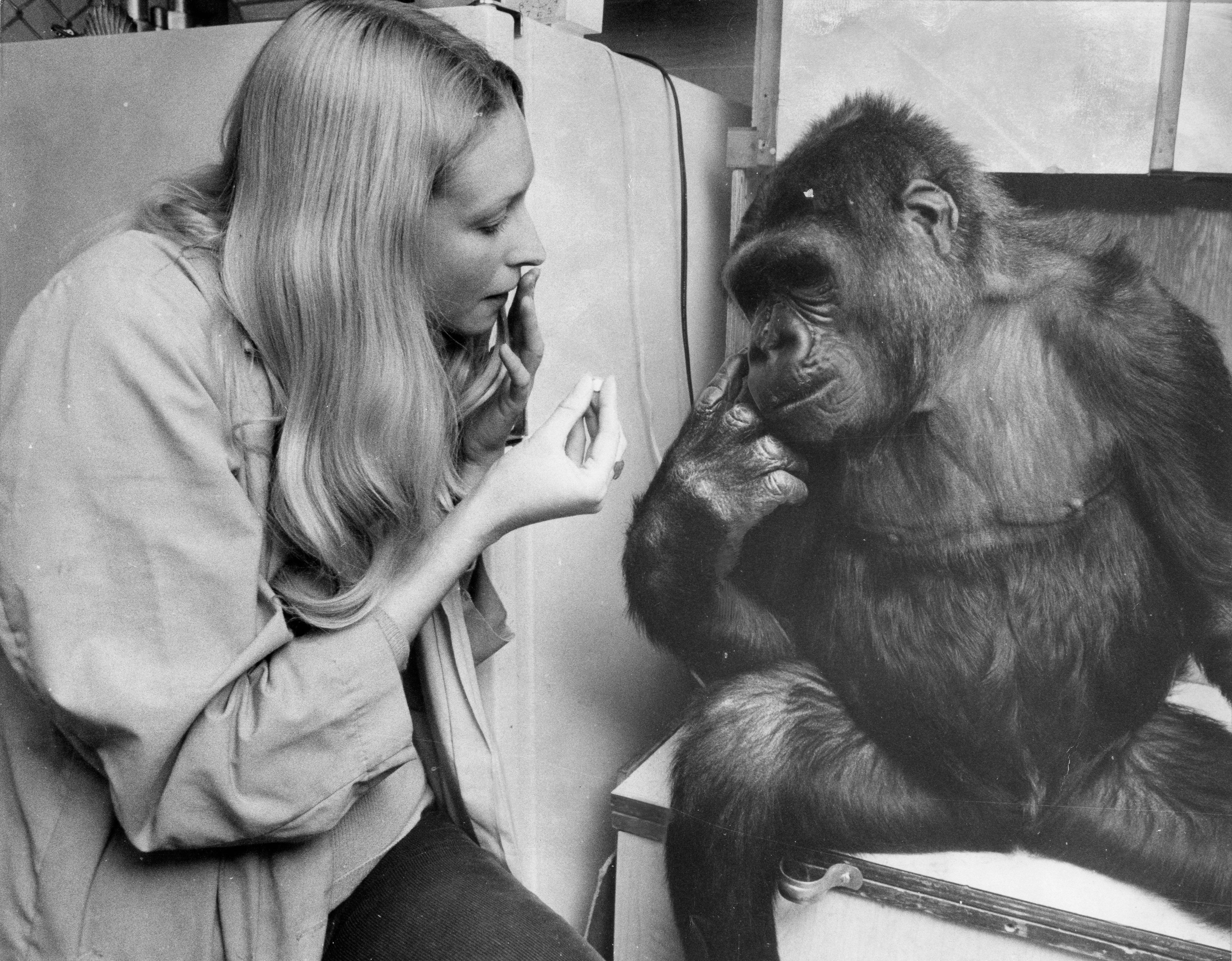If we teach animals how to ‘talk’ we have a duty to listen
To find a way to communicate effectively with other species might be a noble aim, but it raises huge ethical problems. Christine Manby explains

On 4 July 1971, Hanabiko the gorilla – known as Koko – was born at San Francisco Zoo. Any gorilla born in captivity could reasonably expect a degree of public attention but Koko captured the imagination of millions as she grew to be one of the most prolific non-human users of American Sign Language thus seeming to offer a chance to “talk to the animals” in real Dr Doolittle-style.
Koko’s first words were “food”, “drink” and “more” but animal psychologist Francine “Penny” Patterson, Koko’s keeper and sign language instructor, estimated that Koko came to have a vocabulary of more than a 1,000 signs. Having been exposed to spoken English since infancy, Koko could also understand more than twice as many spoken words.
During Koko’s life, which saw her move from the San Francisco Zoo via Stanford to the Gorilla Foundation, which Patterson set up in Koko’s honour, the gorilla was feted by the media, the scientific community and celebrities alike. She met Leonardo DiCaprio, William Shatner, Sting and The Golden Girls star Betty White. Koko was a big fan of American children’s television presenter Mister Rogers, having watched his show since she was an infant. She was thrilled to appear in an episode of Rogers’ Neighbourhood, where she taught the veteran entertainer to sign “I love you”. Eminent primatologists Diane Fossey and Jane Goodall visited Koko to ask her about her life in captivity. Flea from the Red Hot Chili Peppers taught Koko how to play bass guitar. For a while Koko even had her own pet cat, whom she named “All Ball”, demonstrating an unexpected ability to rhyme.
Subscribe to Independent Premium to bookmark this article
Want to bookmark your favourite articles and stories to read or reference later? Start your Independent Premium subscription today.
Join our commenting forum
Join thought-provoking conversations, follow other Independent readers and see their replies